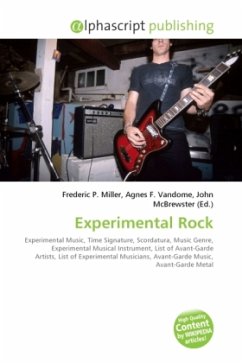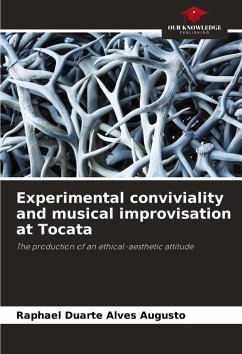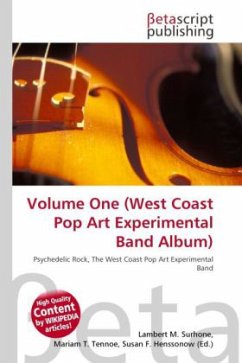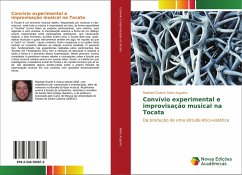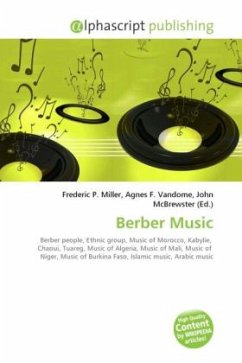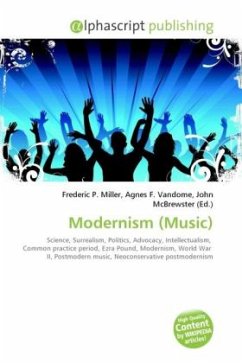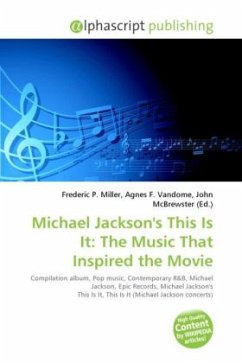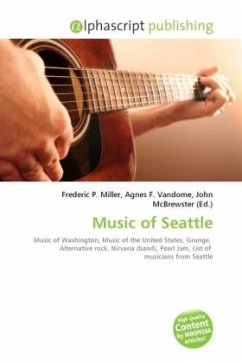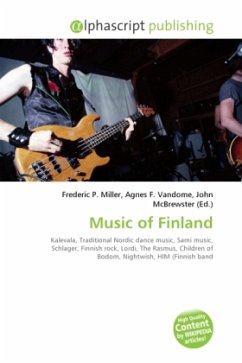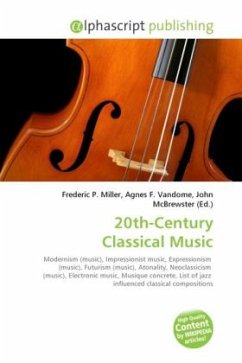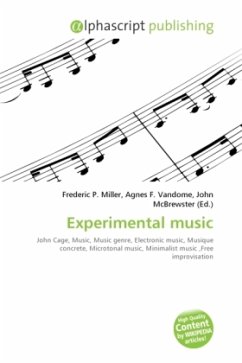
Experimental music
Versandkostenfrei!
Versandfertig in 6-10 Tagen
26,99 €
inkl. MwSt.

PAYBACK Punkte
13 °P sammeln!
Experimental music refers, in the English-language literature, to a compositional tradition which arose in the mid-twentieth century, particularly in North America, and whose most famous and influential exponent was John Cage (Grant 2003, 174). More loosely, the term "experimental" is used in conjunction with genre names to describe music within specific genres that pushes against their boundaries or definitions, or else whose approach is a hybrid of disparate styles, or incorporates unorthodox, new, distinctly unique ingredients. Similarly, it has sometimes been used to describe "transethnic"...
Experimental music refers, in the English-language literature, to a compositional tradition which arose in the mid-twentieth century, particularly in North America, and whose most famous and influential exponent was John Cage (Grant 2003, 174). More loosely, the term "experimental" is used in conjunction with genre names to describe music within specific genres that pushes against their boundaries or definitions, or else whose approach is a hybrid of disparate styles, or incorporates unorthodox, new, distinctly unique ingredients. Similarly, it has sometimes been used to describe "transethnic" music: the mixture of recognizable music genres. A quite distinct sense was current in the late 1950s to describe computer-controlled composition, and the term at that time also was sometimes used for electronic music and musique concrète. "Experimental music" has also been used in music journalism as a general term of disapprobation for music departing from traditional norms.



